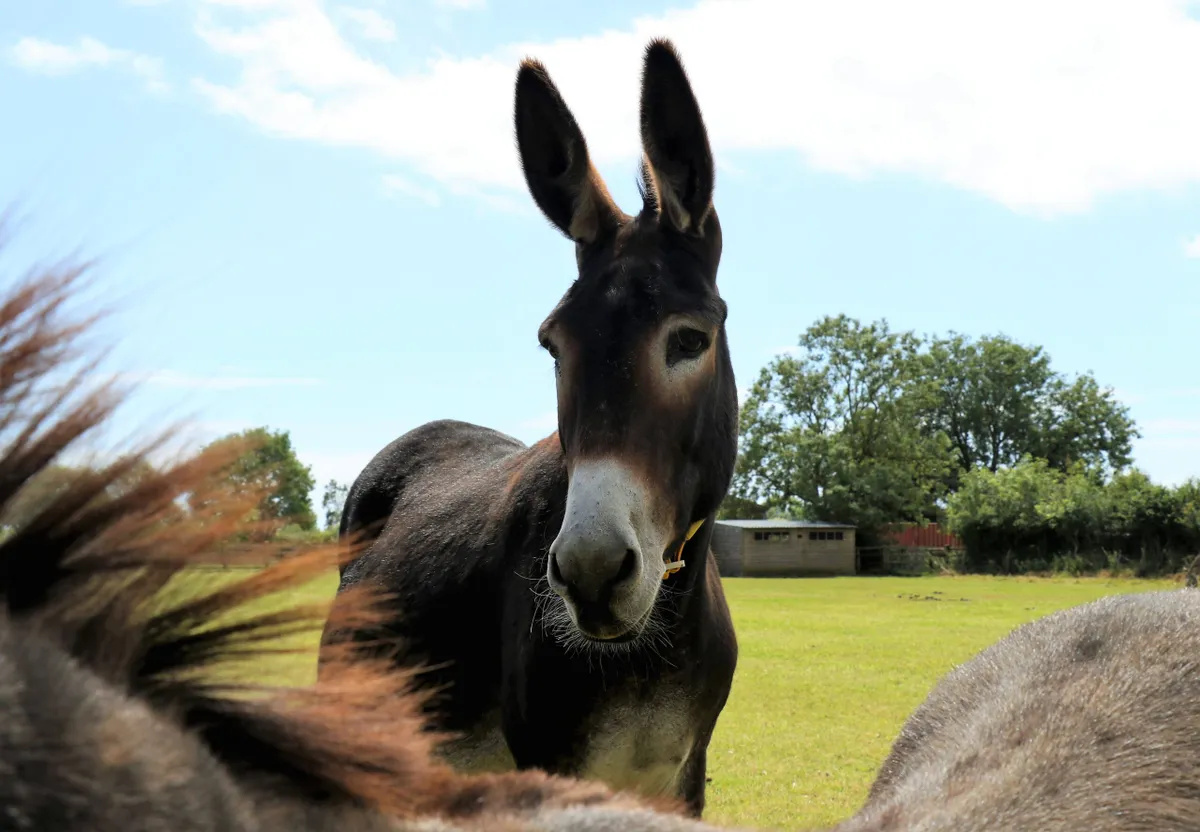As the term ‘donkey’s years’ suggests, donkeys can live for quite a number of years, although there are many things to consider that will enable a donkey to live a long and healthy life, says Ben Hart from The Donkey Sanctuary.
How long do donkeys live?
In the wild, donkeys can live in to their mid-teens, while domestication, with its veterinary, hoof and dental care means donkeys can live a much longer life.
The accepted classification for a ‘geriatric’ donkey is one that is over 20 years old, but many donkeys live into their 30’s, with some going on in to their 40’s, or extremely rarely, their fifth decade.
This is more the case in donkeys kept as companions rather than as working donkeys, but in both situations, they deserve and need, special care.
Do donkeys live longer than horses?

Donkeys tend to live longer than horses live, and this comes down to genetic reasons and species differences. A donkey’s digestive system is much more efficient, meaning they only require 50-75% of the food, that a horse of a similar size would need. Read more on the differences between donkeys and horses.
Domestic donkeys originated from the African wild ass, who lived in the sparse arid environment of the semi-arid regions of Northeast Africa. This means they are better suited browsing on shrubs and bushes and are better suited surviving on rough vegetation.
As equines age, it becomes more difficult for them to chew their food and therefore extract the nutrition they need to maintain a healthy body weight. With horses this can be a real problem as they can’t take on the fibrous bulk they require and hence can lose condition easily and struggle to maintain their weight.
- What do horses eat?
- Don't feed strange horses, or donkeys, when out in the countryside – here's why
- How much does a horse weigh?
Whereas a donkey, due to their efficient digestive system, and their ability to get the energy out of their food, will be able to survive on a diet that wouldn’t sustain a horse of the same size and weight. Read more about the differences between horses and donkeys.
This is one of the reasons where domestication has helped both species, and how specific feed, such as short chop, enables both species to extract the nutrition they need.
At international animal welfare charity The Donkey Sanctuary, part of their ongoing care as they age is to alter their diet as appropriate. The care they are given from their dedicated grooms, will hopefully see them living a healthy happy life, in fact, will see them living for donkey’s years.
The Donkey Sanctuary is the world’s largest equine welfare charity. Our vision is a world where donkeys and mules live free from suffering and their contribution to humanity is fully valued. We run 10 sanctuaries around the UK and Europe, giving lifelong care to more than 7,000 donkeys and mules. Our hospital treats sick donkeys and trains vets both nationwide and worldwide. Our donkey-assisted activities programme supports the development of people's life skills and wellbeing by connecting with our donkeys on an emotional and physical level.
Images by The Donkey Sanctuary